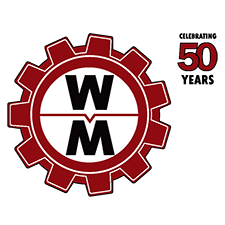 Purchasing a new press brake for your business can be a big challenge. With so many options to choose from, weighing the pros and cons can add more confusion to your decision. Do you purchase a low upfront cost model and develop steady runs with high volumes of waste? Or do you make the long term investment in energy efficient models with greater accuracy and increased production speeds?
Purchasing a new press brake for your business can be a big challenge. With so many options to choose from, weighing the pros and cons can add more confusion to your decision. Do you purchase a low upfront cost model and develop steady runs with high volumes of waste? Or do you make the long term investment in energy efficient models with greater accuracy and increased production speeds?
Here’s a list of the types of presses available and an outline of what you need to consider before you purchase one:
– Mechanical Press Brake – Economical but difficult to safe guard
– Hydraulic Press Brake –The most common press brake
– Pneumatic Press Brake – Air operated, used for small part bending
– Electronic Press Brakes – Uses servo mechanism to significantly reduce errors
1) Access Your Needs
It’s important to consider the size of your workshop or manufacturing space when selecting a press brake. If you are using a press for a hobby or for a small production run then a mechanical or pneumatic press brake may be the most cost effective. If you plan on making a larger run of product from thicker sheet metal then a hydraulic or electronic press brake is necessary. The ideal investment for large scale manufacturers is a servo-electronic press brake. The SafanDarley “E-Brake” has enhanced safety features for the operator and it cuts cycle times by 30% while using 50% less energy than hydraulic or pneumonic presses.
2) Consider the Controls
The purchase of your press brake may be influenced by the training and expertise of your operators. Hiring a new press brake operator or spending time training your existing operator may not be feasible.
– Hand presses and older mechanical presses require manual set up at the rear of the machine. This type of press will work for small shops or hobbyists, but the lengthy set up time will be too costly for large scale metal fabrication shops.
– CNC brakes require specific operator training but significantly decrease press set up times. Most large-scale manufacturers use CNC hydraulic brakes to produce accurate products quickly and consistently. The question for most manufacturers is whether to make the investment and switch to a servo-electric press that will further reduce product cycle times while saving money on energy costs.
3) You’re Safer with a Supplier
Lastly, you want to purchase your press brake from a supplier that specializes in metal forming and fabrication machinery. An experienced salesperson will address your needs and offer press brakes to suit your budget and production goals. Purchasing a press brake from a manufacturing distributor will provide you with services such as ongoing technical support and preventative maintenance programs. You will also benefit from access to a large inventory of replacement parts, so if your sheet metal press brake needs servicing a reputable supplier can quickly get your production running smoothly again.
>>Check out the extensive line of Press Brakes we offer at Westway Machinery.

